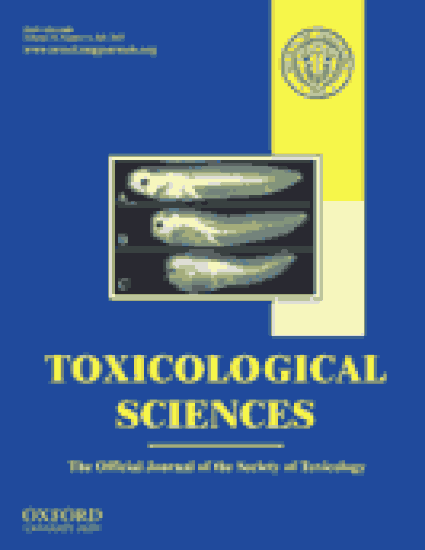
Article
Exposure to 2,3,7,8-Tetrachlorodibenzo-p-dioxin (TCDD) Renders Influenza Virus-Specific CD8+ T Cells Hyporesponsive to Antigen
Toxicological Sciences
(2003)
Abstract
While considerable evidence indicates that exposure to the pollutant 2,3,7,8-tetrachlorodibenzo-p-dioxin (TCDD) impairs T cell function, the precise mechanism underlying this effect is not well understood. Furthermore, relatively little is known about the effects of TCDD on the fate of activated, antigen-specific T cells in vivo. In the present study, we took advantage of major histocompatibility complex (MHC) class I-restricted tetramers and clonotypic anti-T cell receptor (TCR) antibodies to follow the fate of influenza virus-specific CD8+ T cells in mice treated with TCDD. Exposure to TCDD suppressed the clonal expansion of influenza virus-specific CD8+ T cells, resulting in a three- to five-fold reduction in the number of cytotoxic T lymphocytes (CTL) in the lymph node, as compared to vehicle-treated mice. Studies to address possible mechanisms for the diminished CTL response failed to show evidence for increased apoptosis in virus-specific CD8+ T cells from TCDD-exposed mice. However, treatment with TCDD reduced the number of proliferating virus-specific CD8+ T cells by as much as 70% on day 7 post infection. Moreover, ex vivo restimulation of lymph node cells with influenza virus nucleoprotein (NP366–374) peptide and exogenous interleukin-2 (IL-2) only partially restored the proliferation of influenza virus-specific CD8+ T cells from TCDD-exposed mice and failed to stimulate interferon-gamma(IFNγ) production by these cells. The observation that neither proliferation nor IFNγ production by CD8+ T cells could be completely restored, even when cells were provided with optimal stimulation, suggests that exposure to TCDD drives antigen-specific CD8+ T cells into a state of unresponsiveness similar to anergy.
Keywords
- TCDD (dioxin); immunosuppression; CD8+ T lymphocytes; antigen-specific; tetramer,
- influenza virus; anergy; mouse; lymph node; in vivo
Disciplines
Publication Date
July, 2003
Citation Information
Mitchell, K. A. and Lawrence, B. P. (2003). Exposure to 2,3,7,8-tetrachlorodibenzo-p-dioxin (TCDD) renders influenza virus-specific CD8+ T cells hyporesponsive to antigen. Toxicol. Sci. 74(1): 74-84.
